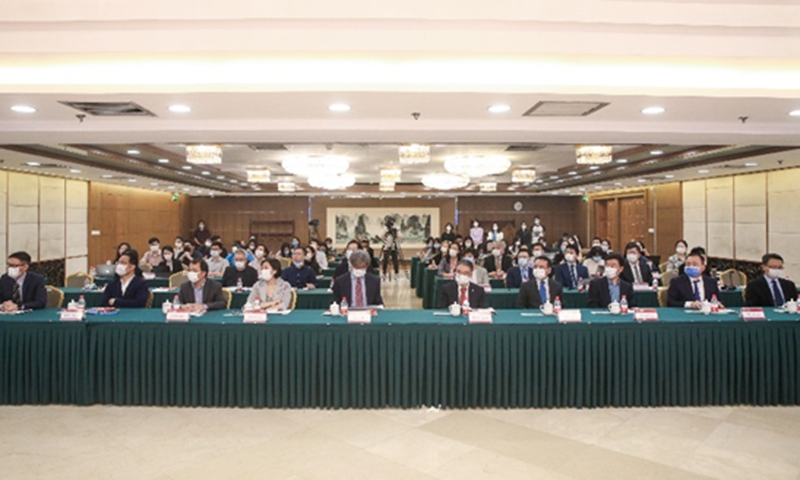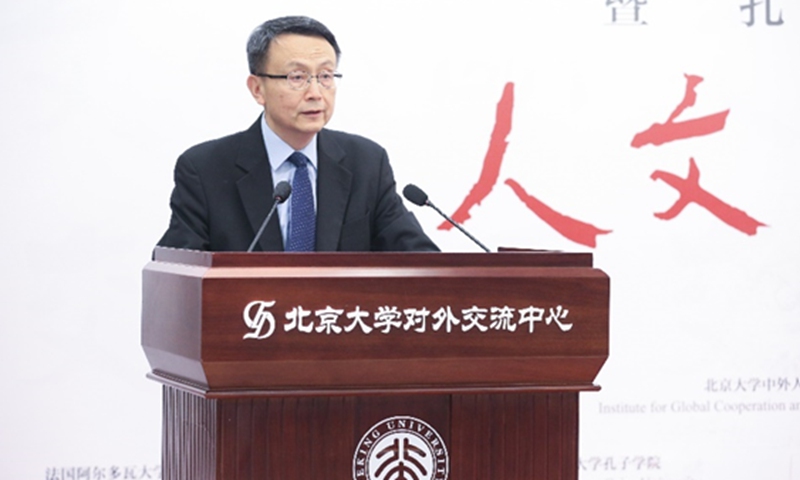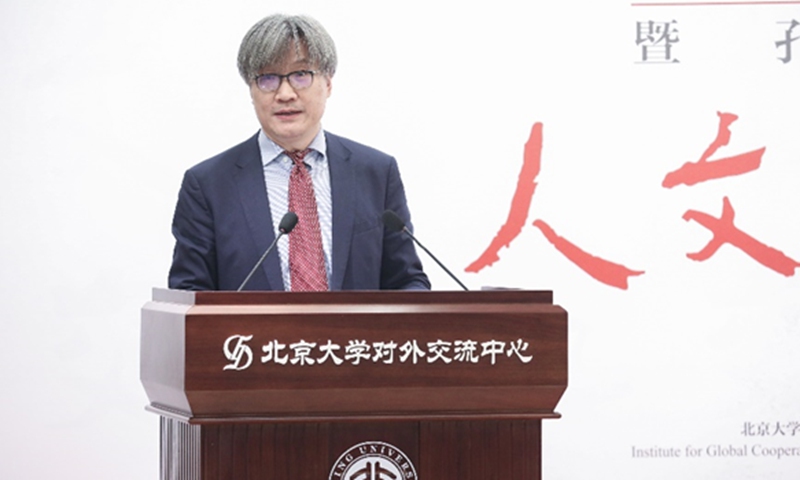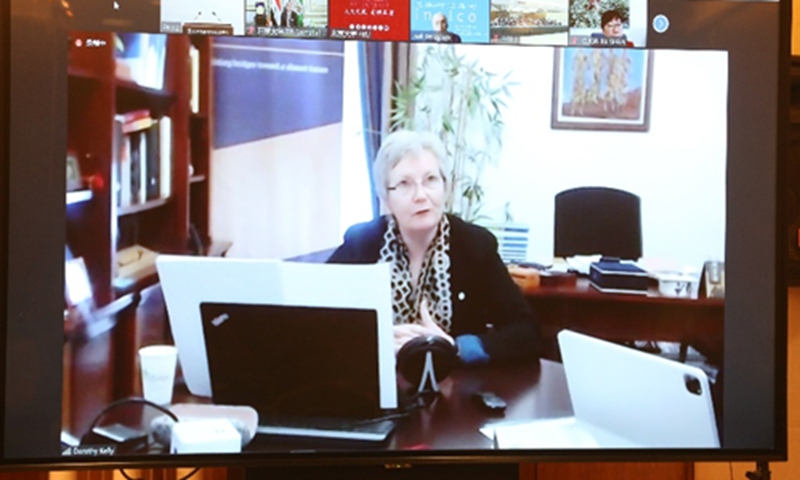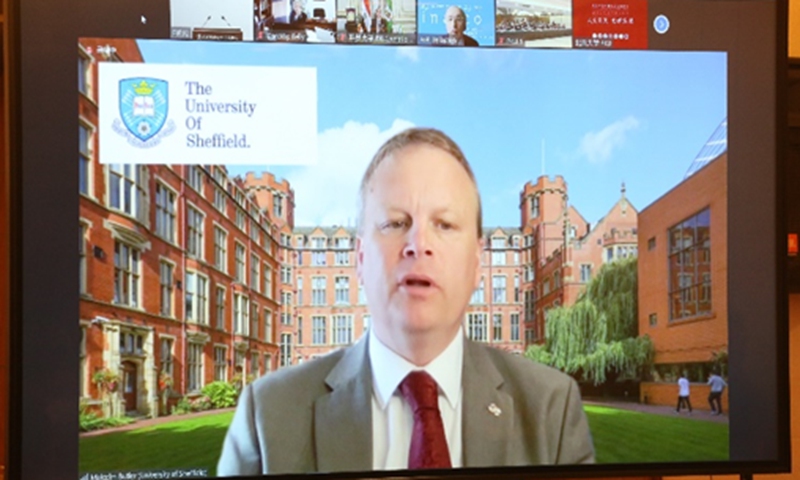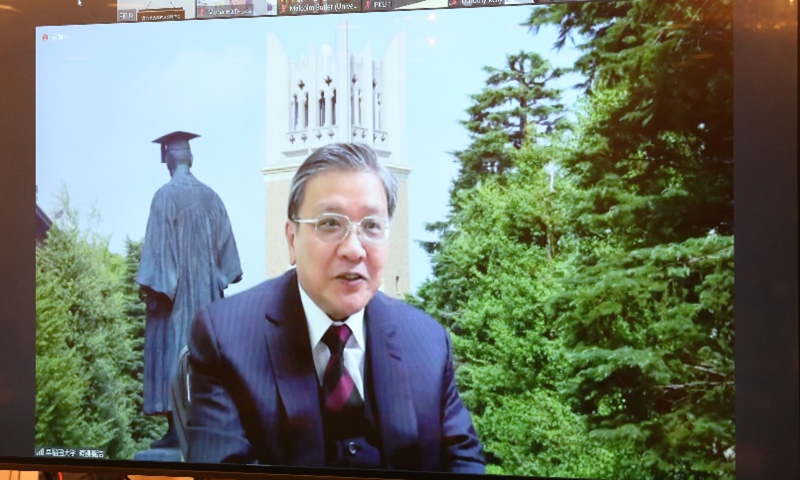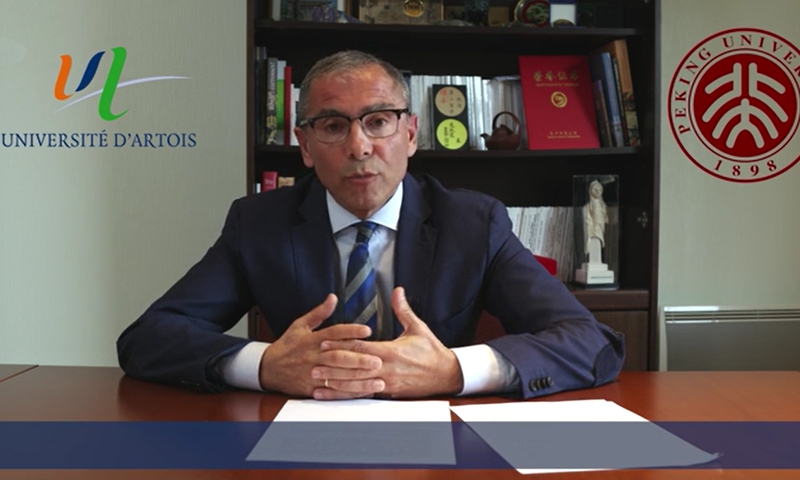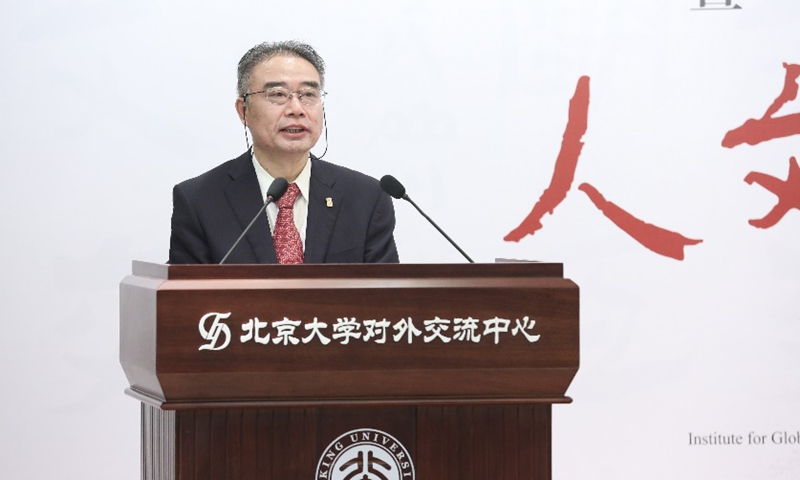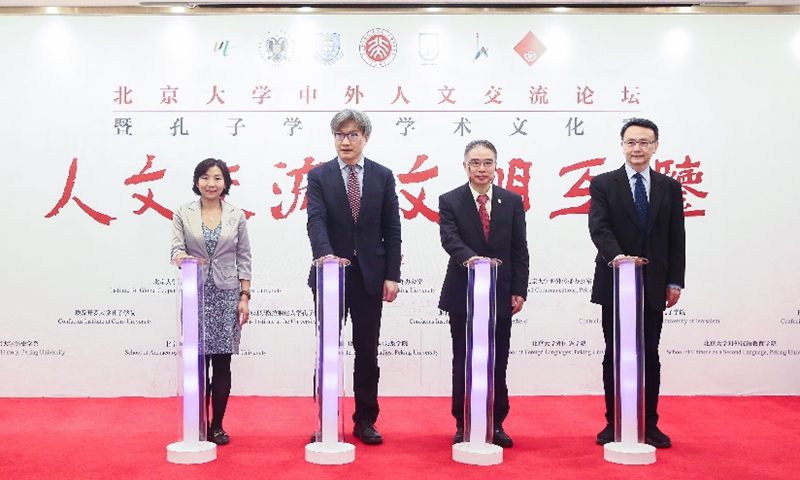Peking University, April 30, 2022: The International Forum on People-to-People Exchange and Academic Cultural Season of Confucius Institute, Peking University, co-hosted by the Office of Confucius Institute, the Institute for Global Cooperation and Understanding (iGCU), and the Office of Global Communication, was launched Monday at Peking University.
The International Forum on People-to-People Exchange and Academic Cultural Season of Confucius Institute, Peking University is launched in Beijing, April 25, 2022. [Photo provided to chinadaily.com.cn]
Jia Qingguo hosts the opening ceremony. [Photo provided to chinadaily.com.cn]
The theme of the forum is "People-to-People Exchanges, Mutual Learning among Civilizations". Leading scholars and experts from seven prestigious universities are participating in this grand event, and aiming to explore new approaches to promoting social and cultural exchanges between different civilizations and facilitating mutual understanding.
Vice President of Peking University Wang Bo delivers opening speech. [Photo provided to chinadaily.com.cn]
Wang Bo, vice president of Peking University, stated in his opening speech that people-to-people exchanges are not only exchanges between people, but also exchanges between civilizations, through which we could achieve mutual understanding and maintain the vigorous vitality of civilizations themselves.
Ever since its establishment, Peking University has been committed to promoting and facilitating extensive and high-quality socio-cultural international exchanges, as well as mutual learning among civilizations. By organizing a great variety of academic events which all had intended to contribute to the harmony of civilizations, Peking University has shown to the world that it is an institute that encourages and supports professional academic research in the field of Humanities and Social Sciences, strives to help construct an open and inclusive international academic community while contributing to the development of human wisdom.
Vice President of Cairo University Gamal Elshazly. [Photo provided to chinadaily.com.cn]
Vice President of Cairo University Gamal Elshazly, Vice President of the University of Granada Dorothy Kelly and Vice President of the University of Sheffield Malcolm Butler have shared their personal experience with China (or Chinese culture in general), their universities' previous cooperation with different universities in China, as well as the establishments of Confucius Institutes at their universities, in retrospect.
Vice President of the University of Granada Dorothy Kelly. [Photo provided to chinadaily.com.cn]
They generally agreed that we are now living in a world filled with challenges. In order to better cope with these global challenges such as climate change, countries should work together and strengthen ties between one another.
Vice President of the University of Sheffield Malcolm Butler. [Photo provided to chinadaily.com.cn]
It is believed that the timing of this forum is perfect. It can help promote people-to-people exchanges between different cultures and enable mutual understandings.
Vice President of Hebrew University of Jerusalem Mona Khoury Kassbari. [Photo provided to chinadaily.com.cn]
Vice President of Hebrew University of Jerusalem Mona Khoury Kassbari introduced the progress made by the Hebrew University in the field of Humanities and further talked about Hebrew University's academic cooperation with Peking University. She noted that both Chinese and Jewish cultures are rich in history and, in order to better understand each other's differences, it is essential to communicate.
Vice President of Waseda University Watanabe Yoshihiro. [Photo provided to chinadaily.com.cn]
Vice President of Waseda University Watanabe Yoshihiro shared his experience of conducting research on ancient Chinese history in his speech and further explained the achievements of Waseda University in the research of ancient Chinese history as well as Waseda University's several important academic projects with Peking University. Watanabe also mentioned that as COVID-19 has profoundly affected our daily lives, including our academic exchanges as well, and that Waseda University is now actively exploring new forms of academic exchanges and wishes to continue cooperating with Peking University to promote people-to-people exchanges between China and Japan.
President of the University of Artois Pasquale Mammone. [Photo provided to chinadaily.com.cn]
President of the University of Artois Pasquale Mammone said in his speech that China and France are old friends, with their relations based on exchanges and interactions that have taken place over the past century. He noted that even before the 20th century, French writers like Voltaire had already been fascinated by Chinese culture, and the history of Sino-French cultural and academic exchanges was noticeably rich. He then introduced the scientific cooperation projects between the two countries in the 21st century. The University of Artois began the construction of its Confucius Institute in 2008, equipping it with missions to promote academic exchanges and play as a medium for disseminating Chinese culture in France.
Secretary General of Chinese International Education Foundation Zhao Lingshan. [Photo provided to chinadaily.com.cn]
Secretary General of Chinese International Education Foundation Zhao Lingshan pointed out that living in this ever-changing world, it is significant that scholars would actively contribute to academic exchanges between different countries, work to facilitate the evolution of human wisdom and eventually make changes. The Confucius Institute has not only opened a window for the World to catch a glimpse of China, but has also provided a platform for foreigners who wish to learn the Chinese language or to understand the culture of China. No matter how the world changes, the goal of the Confucius Institute will remain intact. This forum will greatly enrich the academic connotation of Confucius Institutes and contribute to the construction of a community with a shared future for mankind.
Professor at the School of International Studies at Peking University Yuan Ming. [Photo provided to chinadaily.com.cn]
Professor at the School of International Studies at Peking University Yuan Ming reviewed the development of the Yenching Academy in her speech. She shared the touching moments that she perceived when communicating with young scholars worldwide. She noted that during people-to-people exchanges, the distinctive characteristics of different civilizations would stand out brightly. Thus, social and cultural exchanges between civilizations can not only help to achieve mutual understanding, but would also contribute to the development of human wisdom. To comprehend Chinese culture, we Chinese must understand the world first. In a similar logic, the world needs to better understand China, too. The forum is of great significance, as it not only enables China to understand the world, but also the other way around.
13
Former Inspector General of Chinese Language Teaching at the French Ministry of National Education Joel Bellassen. [Photo provided to chinadaily.com.cn]
Former Inspector General of Chinese Language Teaching at the French Ministry of National Education Joel Bellassen praised and commended the initiative of holding this forum. He shared his days of studying at Peking University and talked about how he first engaged in Chinese education, as well as his stories of establishing the specialty of Chinese Language Teaching after returning to France. He pointed out that although misunderstandings may occur in cross-cultural exchanges, it is still of great necessity to objectively observe both our similarities and differences. Bellassen reckoned that once we learn our lessons from the developmental history of different cultures, we can improve our understanding of different civilizations.
The International Forum on People-to-People Exchange and Academic Cultural Season of Confucius Institute, Peking University is launched in Beijing, April 25, 2022. [Photo provided to chinadaily.com.cn]
The first sub-forum took place on the same day, themed "A Mosaic of Ancient Eurasia: New Advances in Eurasian Archaeology".
